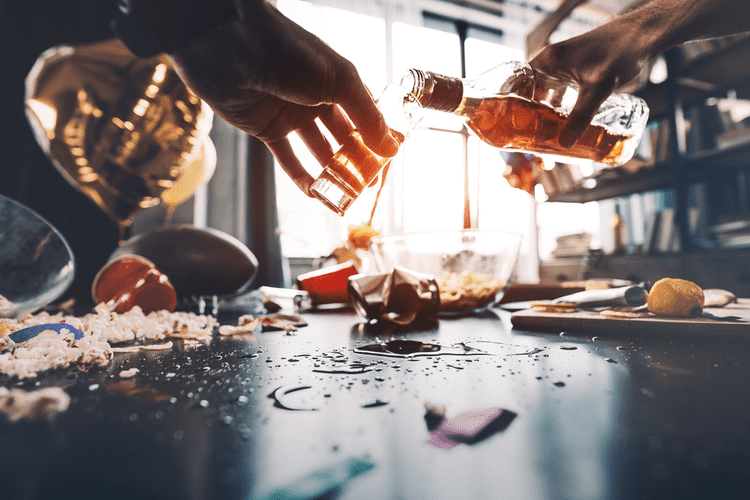The Billionaires Secret Plan to Solve Californias Housing Crisis The New York Times
And if they are lonely or dealing with stress, teens may use substances to distract from these feelings. If those friends are older, teens can find themselves in situations that are riskier than they’re used to. For example, they may not have adults present or younger teens teen drug abuse may be relying on peers for transportation. Teens may be more likely to try substances for the first time when hanging out in a social setting. Your teen’s personality, your family’s interactions and your teen’s comfort with peers are some factors linked to teen drug use.
- The reporting included conversations with an admitted pedophile who concealed his identity using encryption software and who runs a site that has hosted as many as 17,000 such images.
- Teens who feel supported and loved are also more likely to stop experimenting with drugs or seek help if they have an addiction.
- Other forms of psychological abuse included requiring the teens keep bathroom stalls open while they relieved themselves, prohibiting them from speaking to one another or looking at each other, and penalizing them if they were caught looking out a window.
- Republican politicians and other critics say the treatment is dangerous, even likening it to child abuse.
- These are some of the countless rules that teens had to follow at Academy at Ivy Ridge, a disciplinary boarding institution that operated in upstate N.Y.
The review showed that substance addiction among adolescents between 12 to 19 years is widespread, though national initiatives exist to support young employment and their development. Research on psychological risk factors for teenage substance abuse is vast, wherein conduct disorders, including aggression, impulsivity, and attention deficit hyperactivity disorder, have been mentioned as risk factors for substance use. Parents’ attitudes toward drugs, alcohol, academic and peer pressure, stress, and physical outlook are key determinants. Teenage drug usage has a significant negative impact on users, families, and society as a whole. It was found that a lot has been done to provide correct intervention to those in need with the constant development of programs and rehabilitative centers to safeguard the delicate minds of youths and prevent them from using intoxicants. Still, there is much need for stringent policy and program guidelines to curb this societal menace.
Law enforcement seizures of pills containing fentanyl increased dramatically between 2018-2021
This video for middle school students explains how synthetic cathinones, commonly known as bath salts, affect the brain… There are treatment centers designed for teens that target the emotional and social issues that led to their drug use. The warning signs used to determine if a teen or adolescent may have a substance use disorder are listed by Dr. Ashish Bhatt, MD. Teens who abuse drugs may have a greater risk of developing an addiction when they are adults. Teens often experience negative emotions and stress that may lead them to substance abuse.
- Although brain development continues well into adulthood (Spear, 2014), we limit this review to studies using adolescent sample populations with a mean age of 19-years-old or lower to capture the potential effects of drug use during the most dynamic stages of post-childhood development.
- HT drafted the nicotine literature review, the “Future Directions” section, and Figure 1, as well as helped format Supplementary Tables S1–S5.
- Cocaine is a highly addictive drug that causes various psychiatric syndromes, illnesses, and symptoms.
- Even more striking was that within three years of first trying the drug, 20 percent of adolescents became dependent on it, almost double the number of young adults.
- During this time, the body experiences increased production of gonadal steroids that contribute to growth and sexual development (Spear, 2000).
- Ivy Ridge was not licensed, certified or registered with the New York State Department of Education, and the diplomas were not transferable to colleges.
- The findings have been organized into categories to cover essential aspects like epidemiology, neurobiology, prevention, and treatment.
However, experimentation is a fact of life — and just because a teen has tried drugs or alcohol doesn’t mean they will become an addict. It’s more important to understand why some teens are tempted to experiment in the first place. Anyone can develop a substance use disorder, but certain situations or conditions can make someone more likely to try or misuse drugs or alcohol. If their old friends weren’t using drugs or alcohol, they may not fit in with your teen’s new lifestyle. So, your teen may begin to hang out with people who have the same interests and enjoy the same substances.
How Can I Tell If My Teenager Is Using Drugs or Other Substances?
Cannabis has been shown to alleviate stress in small doses, but more significant amounts can cause anxiety, emotional symptoms, and dependence [28]. Myelination and synaptic pruning are two maturational brain processes that take place during adolescence https://ecosoberhouse.com/ and the early stages of adulthood. According to reports, these remodeling mechanisms are linked to efficient neural processing. They are assumed to provide the specialized cognitive processing needed for the highest neurocognitive performance.

Teenagers in Montana are 39.58% more likely to have used drugs in the last month than the average American teen. Teenagers in Missouri are 10.39% less likely to have used drugs in the last month than the average American teen. Teenagers in Mississippi are 21.23% less likely to have used drugs in the last month than the average American teen. Teenagers in Minnesota are 2.14% less likely to have used drugs in the last month than the average American teen. Teenagers in Michigan are 6.95% more likely to have used drugs in the last month than the average American teen.





